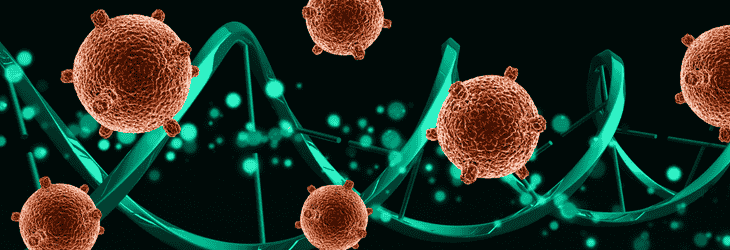Track: Cancer Biology and Genetics

Cancer biology and genetics form the foundation for understanding the molecular and cellular mechanisms that drive cancer initiation, progression, and resistance to therapy. This session explores breakthroughs in cancer genetics, tumor microenvironment research, and molecular oncology that pave the way for precision medicine and innovative cancer prevention strategies. By integrating preventive oncology, cancer epidemiology, and healthcare research, it emphasizes how genetic alterations, epigenetics, and signaling pathways contribute to cancer risk and progression. Attendees will gain insights into how these discoveries enhance early detection, guide targeted therapies, and support global cancer initiatives to reduce the worldwide cancer burden.
Molecular Pathways Driving Cancer Initiation and Progression
Understanding the molecular pathways involved in cancer development is crucial for identifying therapeutic targets. This sub-topic highlights key signaling pathways, oncogene activation, and tumor suppressor gene loss that influence cancer risk, progression, and treatment response.
Role of Oncogenes and Tumor Suppressor Genes in Cancer Biology
Oncogenes and tumor suppressor genes regulate cell growth and division. This sub-topic examines how their mutations drive uncontrolled proliferation, explores diagnostic biomarkers, and discusses targeted therapeutic interventions that enhance cancer prevention strategies and precision-based oncology care.
Epigenetic Modifications and Their Role in Tumor Development
Epigenetic changes such as DNA methylation, histone modification, and chromatin remodeling influence cancer biology without altering the DNA sequence. This sub-topic highlights their role in tumor initiation, progression, and how these insights guide innovative cancer therapy research.
Genomic Instability and Chromosomal Aberrations in Cancer
Genomic instability is a hallmark of cancer, leading to mutations and chromosomal abnormalities. This sub-topic discusses the mechanisms behind genomic instability, its contribution to cancer heterogeneity, and implications for early detection and personalized prevention strategies.
Tumor Microenvironment and Its Influence on Cancer Progression
The tumor microenvironment—including immune cells, blood vessels, and signaling molecules—plays a critical role in tumor growth and metastasis. This sub-topic explores innovative research on targeting the microenvironment to improve cancer therapy outcomes and preventive oncology measures.
Genetics of Cancer Metastasis and Therapeutic Resistance
Metastasis and treatment resistance remain major challenges in oncology. This sub-topic focuses on the genetic drivers of metastasis, molecular mechanisms of resistance to therapies, and how these insights inform global cancer initiatives for advanced treatment development.
Scientific Highlights
- Public Health & Cancer Awareness
- Cancer Prevention
- Screening & Early Detection
- Vaccination & Immunoprevention
- Environmental & Occupational Factors
- Complementary & Emerging Approaches
- Genetic & Personalized Prevention
- Cancer Biology and Genetics
- Cancer Immunology
- Molecular Oncology
- Hematology in Cancer
- Cancer Diagnosis and Therapeutic Approaches
- Oncology Research and Innovations
- Advanced Methods in Cancer Research
- Cancer Epidemiology and Prevention
- Future Trends in Prevention & Research
- Pediatric Oncology


